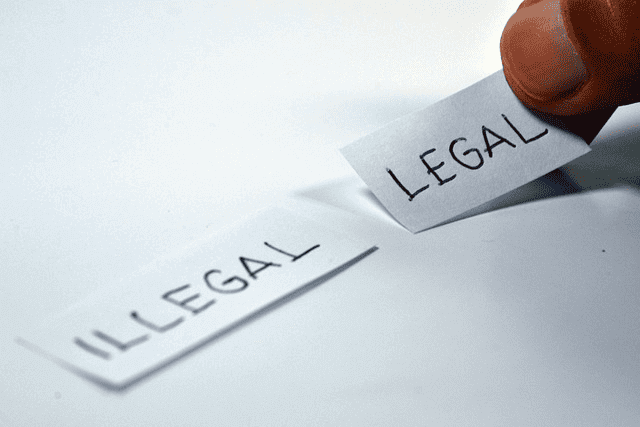
When a loved one dies, settling their estate can be a complex process. One common question is whether it’s necessary to sell personal property or real estate to settle the probate estate. Sometimes selling the property of the decedent is something the heirs don’t even want to consider. On the other hand, sometimes selling is the best option. In this blog, we’ll explore the various options available to you when settling an estate, including selling property. We’ll provide valuable insights and practical advice to help you make informed decisions during this challenging time.
Understanding probate and the probate process
Probate is the legal process of administering the estate of a deceased person. It involves validating the deceased person’s will, identifying and inventorying their assets, paying off any debts and taxes, and distributing the remaining assets to the beneficiaries. The probate process differs from one jurisdiction to another, but it generally follows a similar structure.
The probate process can be lengthy and costly. It often involves court hearings, paperwork, and legal fees. Additionally, selling property during the probate proceedings can add another layer of complexity, as it requires appraisals, marketing efforts, negotiations, and potential delays due to market conditions. These challenges can be overwhelming for those going through probate, especially if they are unfamiliar with the process.
Understanding Probate Property
Before jumping into the topic of selling property to settle an estate, it’s important to understand what probate property entails. Probate property refers to any assets left behind by a deceased individual that must pass through the probate court. This can include real estate, as well as other assets like cash, bank accounts, jewelry, stocks, cars, art, and collectibles, etc. These assets are typically distributed to heirs either through a will or in the absence of a will (intestate).
Exploring the Need to Sell Property
In certain situations, selling property may be necessary to settle an estate. This usually depends on how much debt the decedent had at the time they passed away compared to liquid funds. One common scenario is when there aren’t enough liquid assets or cash available to pay off the debts of all the assets in estate. For instance, if the deceased left behind a home worth $100,000, $2,000 in cash, and credit card debt totaling $20,000, selling the home may be required to pay off the outstanding credit card debts. After payment of the debt, then the remaining proceeds from the sale would then be distributed to the heirs.
Another situation where selling property may be necessary or advisable is when no one can agree on how the estate should be distributed. For example, if the estate is primarily personal property and the heirs can’t agree on who gets what, selling the property to give everyone their share in cash may be the only option. The same may happen with real property; if heirs don’t want to be co-owners of the property, selling and getting money instead may be better.
Another instance where a sale may be required is when the deceased passes away intestate (without a will) and there are no immediate heirs. In such cases, the court may order the property to be sold, and the proceeds will be distributed to the closest relatives that can be located.
Exploring alternative solutions to selling property in probate
While selling property may be necessary in some instances, it’s essential to explore all available options before deciding. Consider these alternatives to selling property to settle an estate:
- Renting the Property: If the property holds sentimental value or has the potential to generate rental income, you might consider renting it out instead of selling. This can provide a steady income stream while preserving the property for future generations.
- In-Kind Distributions: Instead of selling the property and dividing the proceeds among the heirs, it may be possible to distribute the property itself among them. This can be a viable option if the heirs are interested in keeping the property within the family.
- Estate Sales: In cases where the deceased has left behind valuable personal possessions, organizing an estate sale can help generate funds to settle debts without selling the property itself. Estate sales can be conducted either by the executor or with the assistance of professional estate sale services.
- Assuming the debt. Sometimes creditors may allow an heir to assume the debt and continue payments rather than having to sell and pay off the debt in full. It is worth reaching out to the creditor to see what options there may be.

Inheriting property and its implications
Inheriting property can be both a blessing and a responsibility. While it can bring financial security and stability, it also comes with various implications. Understanding these implications is essential for making informed decisions about how to settle probate without selling property.
One of the primary implications of inheriting property is the potential tax burden. In many jurisdictions, inheriting property can trigger tax obligations. It is crucial to consult with a tax professional to understand the specific tax laws and regulations that apply to inherited property. They can provide guidance on how to minimize the tax implications of estate assets and ensure compliance with the law.
Another implication of inheriting property is the need for ongoing maintenance and management. Property ownership comes with responsibilities such as property upkeep, repairs, and insurance. These expenses can add up, especially if the property is not generating any income. Considering these ongoing costs is important when exploring alternative solutions to settle probate without selling property.
The importance of estate planning and avoiding probate
One effective way to avoid the challenges of going through probate, and selling property is through proper estate planning. Estate planning allows individuals to specify their wishes regarding the distribution of their assets after their passing. By creating a comprehensive estate plan, individuals can minimize the need for go through probate and ensure a smooth transition of their property to their chosen beneficiaries.
Estate planning tools such as wills, trusts, and beneficiary designations can help avoid probate altogether. These tools allow assets to pass directly to beneficiaries without the need for court intervention. By engaging in estate planning, individuals can have peace of mind knowing that certain assets and their property will be distributed according to their wishes without the need for their loved ones to go through the complexities of a probate court itself.
What to do if you inherit property
If you find yourself inheriting property, it is essential to take certain steps to ensure a smooth transition and settlement of probate. Firstly, it is crucial to notify the appropriate parties, such as creditors, the executor or the attorney handling the estate. They can guide you through the necessary legal processes and provide information on the next steps to take.
Next, it is advisable to conduct a thorough evaluation of the inherited property. This evaluation should include an assessment of the property’s condition, any outstanding debts or liens, and its market value. This information will be crucial when considering alternative solutions to settle probate without selling property.
Additionally, consulting with professionals such as real estate agents, tax advisors, and estate planning attorneys can provide valuable insights and guidance throughout the probate process. These professionals can offer expertise in their respective fields and help navigate the complexities of settling probate without selling property.
Tax implications of inheriting property and how to minimize them
Inheriting property can have significant tax implications. It is important to understand these implications and explore ways to minimize the tax burden associated with inherited property. Consulting with a tax professional who specializes in inheritance tax can provide invaluable advice tailored to your specific situation.
One way to minimize the tax burden is by taking advantage of the stepped-up basis rule. Under this rule, the value of the inherited property is adjusted to its fair market value at the time of the original owner’s death. This adjustment can help reduce the capital gains tax liability if the property is eventually sold.
Another strategy to consider is gifting or transferring the property to a living trust or a qualified charitable organization. By doing so, you may be eligible for charitable deductions, which can help offset the tax liability associated with the inherited property.
It is crucial to consult with a tax professional to fully understand the tax implications and explore all available options and legal control for minimizing the tax burden. They can provide personalized advice based on your financial situation and the specific tax laws in your jurisdiction.

Legal aspects of probate and inheritance law
Probate and inheritance law can be complex and vary from one jurisdiction to another. It is essential to have a basic understanding of the legal aspects involved to make informed decisions regarding probate and property inheritance.
Probate laws govern the process of administering a deceased person’s estate. These laws outline the steps that need to be followed, the documents required, and the role of the court in overseeing the process. Inheritance laws, on the other hand, determine how property is distributed among heirs when a person dies and there is no valid will in place.
Understanding the legal aspects of probate and inheritance law can help individuals and family members navigate the process more effectively. Consulting with an estate planning attorney who specializes in probate and inheritance can provide invaluable guidance and ensure compliance with the relevant laws and regulations.
Professional services for settling probate without selling property
Navigating the complexities of probate and settling an estate without selling property can be overwhelming. Engaging the services of professionals who specialize in probate properties can provide valuable assistance throughout the process.
Real estate professionals with experience in probate properties can provide guidance on alternative solutions, such as renting out inherited property or exploring property exchanges. They can also assist with property appraisals, marketing efforts, and negotiations if selling the property becomes necessary.
Tax professionals who specialize in inheritance tax can ensure compliance with tax laws and help minimize the tax burden associated with inherited property and financial accounts. They can provide personalized advice tailored to the specific situation and help explore all available options for reducing tax liability.
Estate planning attorneys can offer comprehensive guidance on estate planning strategies that can help avoid probate altogether. They can assist with creating wills, trusts, and beneficiary designations that align with the individual’s wishes and ensure a smooth transition of property to the chosen beneficiaries.
Conclusion: Making informed decisions about probate and property inheritance
The probate process and the challenges of selling property can be overwhelming, but there are alternative solutions available. By exploring options such as renting out the inherited property, considering property exchanges, and engaging professional services, it is possible to settle probate without selling the property.
Inheriting property comes with responsibilities, beyond estate taxes, including ongoing maintenance and potential tax obligations. Understanding these implications and consulting with professionals can help minimize the financial burden and ensure compliance with the law.
Proper estate planning is key to avoiding the complexities of probate and ensuring a smooth transition of property to a family member or chosen beneficiaries. By engaging in estate planning, individuals can have peace of mind knowing that their wishes will be carried out and their loved ones will be spared the challenges of a probate proceeding.
In conclusion, settling probate without selling property requires careful consideration, expert advice, and a thorough understanding of the legal and financial implications involved. By making informed decisions and exploring alternative solutions, individuals and estates can navigate the probate process with greater ease and protect the value of inherited property.
Contact a qualified probate attorney today to discuss your options for settling probate without selling property and ensure your wishes are protected.






